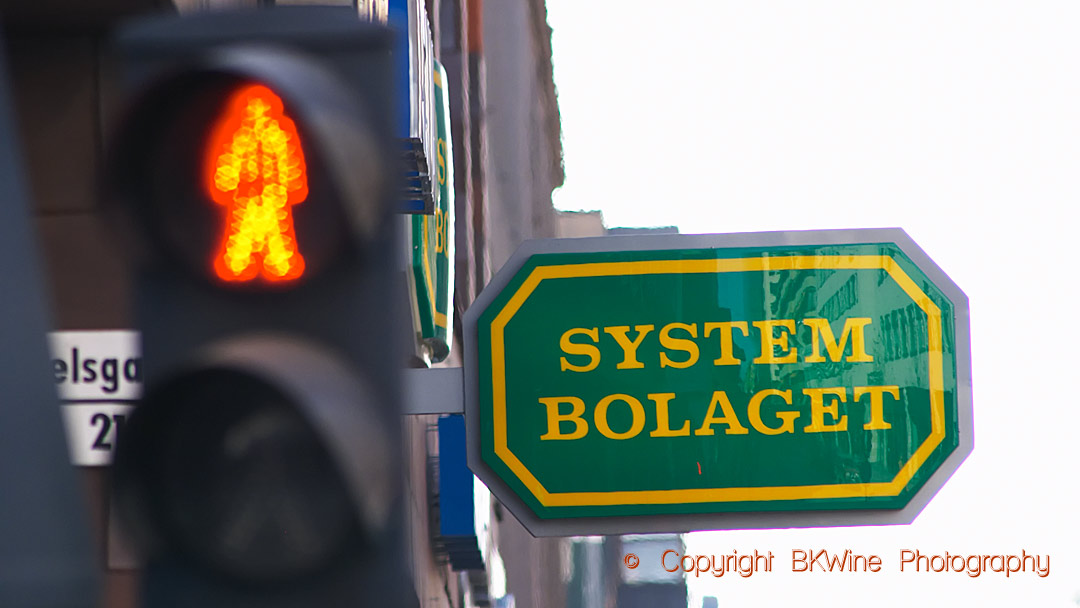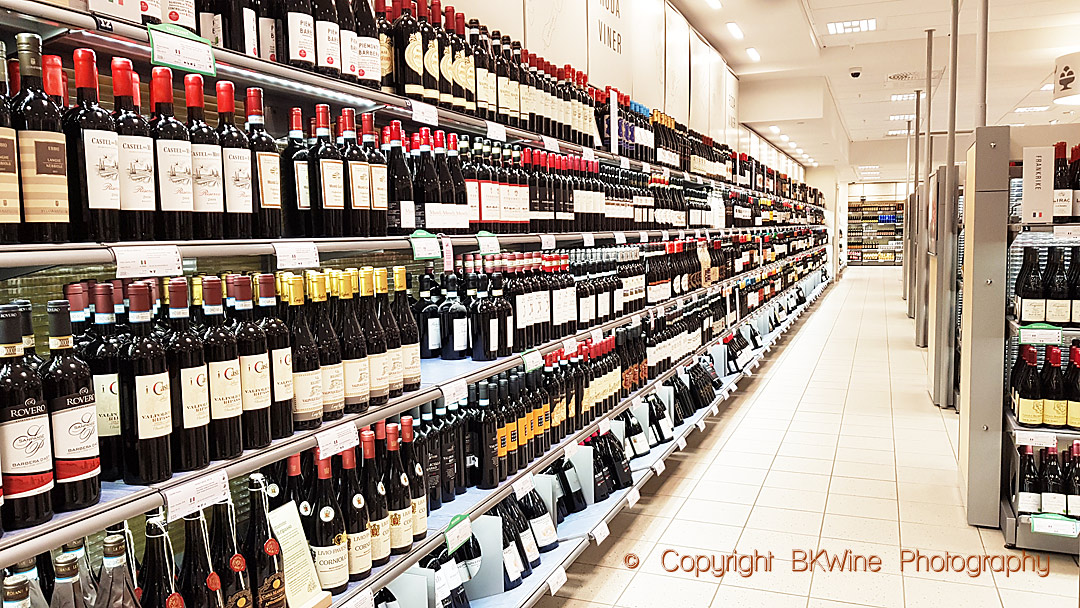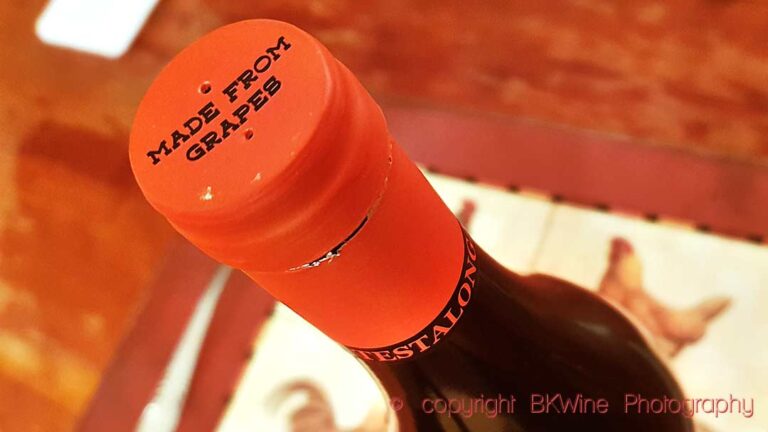This is a book review of a Swedish book called ”Så roligt ska vi inte ha det – En historia om svensk alkoholpolitik” which translates as in the heading. Why publish a review of a Swedish book in English? Sweden is one of the few countries that still has a monopoly on alcohol retail. It is an anachronistic situation that still exists in a few other countries, a situation that it is about time to change. The book explains why.
The book describes the history of Swedish alcohol policies and explains that, contrary to what is officially said, this is not always a question about public health. Instead, it is often about political manoeuvring and power play. It is also today based on a “total consumption model” that has proven to be wrong. Here’s CM Hedin’s review of the book that gives you a few of the key insights.
I have just read Mattias Svensson’s latest book, “We should not have that much fun” (what an excellent title!) (original title: ”Så roligt ska vi inte ha det – En historia om svensk alkoholpolitik”), with a seven-page preface by the gastronomist and food historian Edward Blom. Published by Timbro Förlag.
Mattias Svensson is a neoliberal (in the European sense) debater and author. He has been the editor of the magazine NEO and works at the think tank Timbro. One of his most famous books is ”Glädjedödarna – en bok om förmynderi” which roughly translates into “The Kill-joys – A Book about the Nanny State”. (Ed.: “Förmynderi” is a Swedish expression that is difficult to translate. It can mean guardianship or paternalism, but is more often used in political contexts to describe the attitude of “the nanny state” or “big brother/the state knows what is best for you”.)
This time he deals with Swedish alcohol policy from the beginning of the 17th century to the present day. It has been a curious experience to read this book. Sometimes very entertaining, but just as often deeply depressing when you realize what the Swedish people have had to endure, not least in the last century with the “motbok”, the control society and the restaurant control system.
Ed.: The “motbok” was a kind of alcohol-purchase passport book, a small booklet in which all your alcohol purchases were noted, during the long period of alcohol rationing. It was not rationing due to penury but rationing instead to limit the amount of alcohol anyone was allowed to buy. You could not purchase alcohol if you did not have a motbok. Everyone was allowed a specific ration, and when that was reached, you could not buy any more. The folkrestaurangerna, the “popular restaurants”, refers to a system that required that you ordered food if you wanted to drink any kind of alcohol in a restaurant. (Something that may ring familiar for some in covid-times.)
Mattias Svensson has put an impressive amount of research into his book, and it is so academic that perhaps not everyone finds it a pleasure read.
There are 262 footnotes, an alcohol policy phrasebook and lots of source references. The book is very well written, and everything is fact-referenced. This means that not even the most ardent friends of sobriety can come up with any real criticism, other than possibly that the harmful effects of alcohol should be highlighted more.
Not (only) about public health but more about power and money
After reading Mattias’ book, you realize that alcohol policy is not just about public health, which can be easy to believe if you listen to politicians. There have been many other driving forces behind the absurd laws and regulations that have affected us Swedes.
It is mainly economic motives, but also that politicians so want to control and decide over people’s freedom. The state always knows best, and it is best that the people comply with this! This has led to arbitrary laws, which at best, have made very little difference to public health and, at worst, have been directly counterproductive.
Alcohol came to Sweden with revenues for the state and church
To take it from the beginning, the distilled spirit is believed to have come to our country in the early 17th century, with soldiers returning from fighting in Russia. Then it spread to ordinary people through the church. Both priests and clergymen ran taverns and spirits were drunk both before and after the mass. When the priest was to negotiate with the peasants about the “tithe”, the occasional dram helped to increase the generosity. When the church complained about the increasing restaurant life, it was not primarily out of concern for the parish’s health, but rather because they did not want competition.
Alcohol soon became an important source of tax revenue. Therefore, during different eras, the farmers’ home-distillation was banned, and in 1855 the state opened its own crown distilleries. At the end of the 19th century, laws and alcohol restrictions began to form that lived on well into our day.
The temperance movement
Mattias Svensson describes in detail the growth of the temperance movement in Sweden and how it went hand in hand with politicians from almost all parties at an early stage. Above all, it was parts of the labour union movement and the so-called liberal party (the People’s Party, Folkpartiet) who were passionate about the issue.
A proposal for a total ban on alcohol, prohibition, lost with a hair’s breadth in a referendum in 1922. But instead, the state control of the entire alcohol industry was strengthened, which was initiated by the People’s Party politician Ivan Bratt after the First World War. The state would handle not only production and sales but also imports of wine and spirits and, of course, sales to restaurants.
The National Control Board
As I said, this book is so rich in content that it is impossible to review all parts. But my favourite chapters are those about the introduction of the “motbok” (Ed.: the alcohol rationing passport booklet, see explanation above) in 1919 and all the absurd regulations that came with it. A state within the state came into being, which controlled the population’s “decent behaviour” arbitrarily.
The “National Control Board”, which was formed as early as 1908 (and, in fact, it was not abolished until 1971), gained a great deal of power and could arbitrarily decide who had the opportunity to buy alcohol.
Serving alcohol at a restaurant was just as complicated and brought with it expressions as “La Paloma”, “two whites and one brown”, liquor spies and “table runners”. The young generation today has no idea what this means, but those who were there will not forget it! Lättgrogg (light-grog) was another concept that consisted of serving 2.5 cl of alcohol, but it must be mixed with at least 20 cl of other liquid. In 1951, the Control Board decided to reduce the requirement from 20 cl to 16.3 cl (!).
(Ed.: For those who do not remember, “two whites and one brown” referred to the amount of alcohol that men were allowed to order in a restaurant, two 5 cl glasses with white alcohol (aquavit), and one with brown alcohol (cognac), in total 15 cl. Women usually had half a ration. “La Paloma” was the dish that you must order to be allowed to buy alcohol, but which no one ate. The same plate “flew” back and forth to the kitchen like a pigeon, paloma in Spanish.)
The “motbok”, unequal and sexist
The “motbok” rationing booklet system (see above), which lasted until 1955, was in itself profoundly unequal and sexist. Women were automatically given a lower ration; if they were married, they did not get a rationing booklet motbok of their own. A manual worker who for some strange reason, decided to buy wine instead of aquavit, or, God forbid, a good bottle of brandy, risked losing his rationing booklet.
The same with wine. For each bottle of wine, you got a red stamp in the book. If there were too many of these in the book, it would have caught “measles” and could be withdrawn. It was not considered reasonable that workers had any reason to buy spirits other than simple aquavit or wine; it was assumed that they bought it in order to resell it. The well-to-do in society, on the other hand, were often given extra rations to be able to “entertain” in an appropriate way that corresponded to the social standing.
Today, a faulty total-consumption model in support of bans
The part of the book that deals with the present is at least as interesting and frightening, if not more.
Despite a series of liberal reforms, in the 21st century, we still have a legacy of an alcohol law that is both outdated and difficult to understand. The rules for how ads for wine may be designed, or what may be included on a beer label are telling. It’s the paternalistic nanny-state and nothing else!
The so-called “total consumption model” (TCM) is still used today to justify restrictive alcohol policies. In short, the model says that the more readily available alcohol is, the more you will drink, and thus the damage made by alcohol also increases.
Every time small changes are implemented, such as the opening on Saturdays of the monopoly alcohol shops (previously only open on week-days) or the possibility to buy wine online (previously outlawed), the sobriety movement, and their cheerleaders in the parliament, have painted horror scenarios about more traffic accidents, domestic wife abuse, children who suffer and poorer health for all citizens.
However, reality has looked entirely different. Consumption is falling, not least among young people. And of the total alcohol consumption, hard spirits are steadily declining in favour of beer and wine.
Nevertheless, the total consumption model is used to justify why Swedish wineries are not allowed to have farm sales (cellar door sales) or why Systembolaget must not be exposed to competition through licensed wine shops as in Denmark and in other civilized countries.
(Ed.: There are maybe up to 30 wineries in Sweden, all very small. They cannot sell any wine at the winery. Their only option is to sell to the Systembolaget monopoly or export, neither of which is easy. There is an ongoing debate on allowing cellar-door sales, but the political resistance is strong.)
The temperance movement and Systembolaget’s unholy alliance spending millions for political propaganda
Perhaps the book’s most important chapter, however, is at the end when Mattias Svensson describes how “the nanny state’s paternalistic protectors are closing ranks”.
These include the unholy alliance that exists between IOGT-NTO, the Swedish temperance movement, and Systembolaget, which is increasingly acting unabashedly for its own interests. They spend many millions on PR and advertising to explain their own excellence and importance. They “buy” research that benefits their own cause, through the subsidiary IQ, and the Swedish Council for Information on Alcohol and Other Drugs (CAN). They lobby politicians with advertisements and letters, for example, when the parliament was to vote on cellar-door wine sales.
By reporting wine clubs and online retailers to the police and taking them to court, they try to circumvent the EU’s perhaps most important principle, on the free movement of goods and services.
Mattias Svensson’s book is therefore important in these times, when Systembolaget, with its dubious methods, desperately tries to maintain its monopoly. The book should be a must-read for politicians and officials who have decision power on alcohol-related issues.
The author’s closing words deserve to be repeated here:
“The paternalistic nanny state is a fun (hi)story; freedom is a more fun future!”















